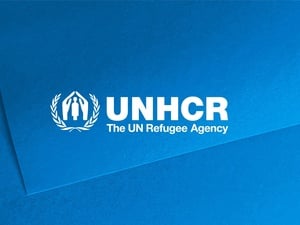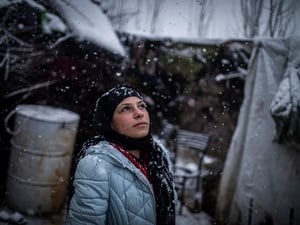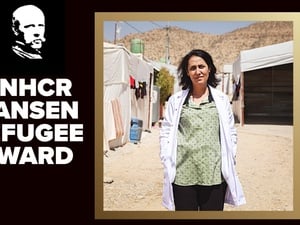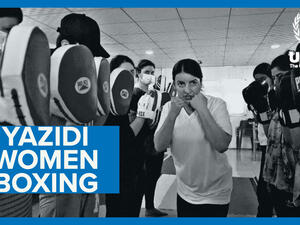Iraq: security an issue for returnees too
Iraq: security an issue for returnees too
We remain very concerned about the situation in Iraq. The violence in Fallujah this week once again demonstrates the overall volatility of the situation, as well as the dangers faced by people inside the country, nationals and foreigners alike.
Likewise for returning refugees; security is one of the biggest concerns. Even though they might not be a target of attacks, returning Iraqis tell us they fear being caught in the wrong place at the wrong time, while others mention the prevalence of land mines and unexploded ordnance.
Under the current situation, UNHCR is not promoting return to Iraq. In fact, the Minister of Displacement and Migration, Mohammed J. Khodair, has specifically requested that we urge countries not to encourage or force Iraqis to go back until the situation has improved. Hundreds of thousands of registered Iraqi refugees live in neighbouring countries and several million are scattered around the world. Despite the instability, some people are nevertheless going back, mostly to the southern governorates of Basra, Maysan and Dhi Qar. An estimated 120,000 people - possibly more - have spontaneously returned to the south, mainly from Iran.
UNHCR has facilitated the repatriation of some 10,000 Iraqi refugees since last July in a series of convoys from Iran, Saudi Arabia and Lebanon. These are people who have been clamouring to repatriate from often desolate refugee camps in order to rejoin their relatives back in Iraq. Before the refugees cross the border in UNHCR-facilitated convoys, we provide them with mine awareness training and other help. But many returning Iraqis are still in for a big shock when they reach home. Many find themselves without housing or employment, and struggle to get by with the food assistance they get from the country's public distribution network. And even if they find their homes intact, returnees often must first reclaim their property from its current occupants, a process that creates additional displacement and tension.
Another challenge comes when they realise that there is no major network of non-governmental organisations (NGOs) operating in south and central Iraq similar to those in the camps they left. We're also particularly concerned because some of the NGOs that do manage to work in the country are increasingly unable to operate due to the fragile security situation.
Some returnees benefit from UNHCR-supported programmes, like shelter projects and other aid to host families, or the reconstruction of community infrastructure such as schools. In the northern governorates, returnees - mostly former displaced persons - are assisted in rebuilding their homes. In Basra and Thi-Qar governorates in the south, over 30,000 extremely vulnerable returnees - including the elderly and women-headed households - receive blankets, tarpaulins, lanterns, cooking stoves, kitchen sets and tents from our partners. Also in Basra governorate, more than 69,000 people benefit from the rehabilitation of water distribution systems in areas receiving former refugees. In Maysan governorate, more than 60,000 returnees receive legal advice and outreach counselling. Income-generating projects have also been set up to create employment.
We believe that the modest assistance projects that we're able to administer from a distance are having an impact on people living through volatile and frightening times, and can only hope that the security situation does not further deteriorate. Our programme in Iraq is budgeted at $74 million this year, of which we still require $54 million.







